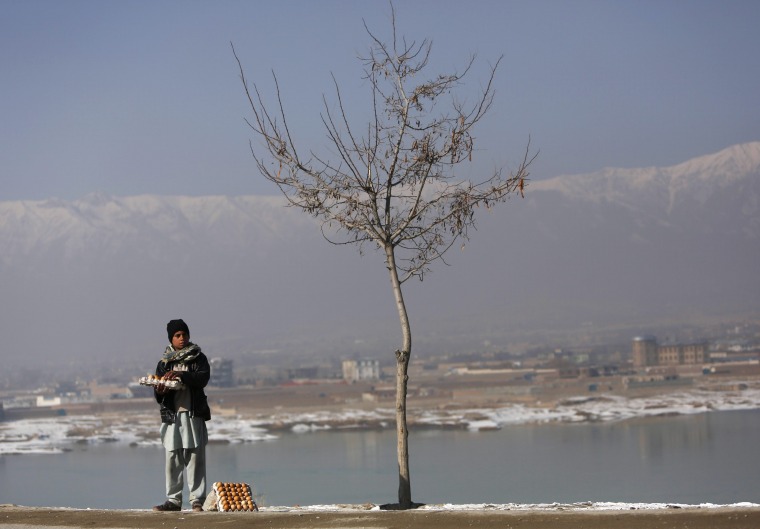U.S. intelligence agencies warn in a new, classified assessment that insurgents could quickly regain control of key areas of Afghanistan and threaten the capital as soon as 2015 if American troops are fully withdrawn next year, according to two officials familiar with the findings. The National Intelligence Estimate, which was given recently to the White House, has deeply concerned some U.S. officials. It represents the first time the intelligence community has formally warned that the Afghan government could face significantly more serious attacks in Kabul from a resurgent Taliban within months of a U.S. pullout, the officials said, speaking anonymously to discuss classified material. The assessment also concludes that security conditions probably will worsen regardless of whether the U.S. keeps troops in the country.
'More pessimistic than ever before'
When U.S. troops withdraw from Afghanistan, a 13-year-old war will have produced gains so tenuous that the Taliban may reclaim much of the country within months

Though U.S. policy in Afghanistan is murkier than it should be after more than 12 years of war, this year is expected to mark the formal end of the conflict. In 2014, President Obama has repeatedly said, the nation will bring servicemen and women home -- or at least most of them, depending on a possible agreement on a residual force that would remain on the ground.
As U.S. officials prepare for this transition, they're also shaping expectations for a post-war Afghanistan. In a piece that didn't generate as much attention this week as it probably should have, David Cloud reports on the scope of the pessimism.
One of the officials told Cloud, "It's very pessimistic about the future, more pessimistic than ever before."
I don't imagine this comes as too big a surprise for those who've followed developments in Afghanistan over the last several years. For that matter, it's possible that the still-classified NIE is mistaken and overly pessimistic.
But looking at the larger context, consider what the collective judgment of domestic intelligence agencies is telling us: by the time U.S. troops withdraw, a 13-year old war, paid for by heartbreaking blood and treasure, will have produced gains so tenuous that the Taliban may reclaim much of the country within months -- Kabul could fall within a year -- and if U.S. troops remain in Afghanistan in significant numbers, it won't make a difference.
Going forward, when it comes to the domestic political debate, there are those who continue to argue that the status quo remain in place even longer and there are those who believe a U.S. military presence is no longer effective or responsible, making withdrawal necessary.
Kevin Drum added, "As near as I can tell, Option A rather curiously marks you as a tough-minded person who faces the world with open eyes. Option B, which actually has the vast weight of evidence behind it, marks you as a dreamer and a defeatist. It's as though we already live on Bizarro Earth."